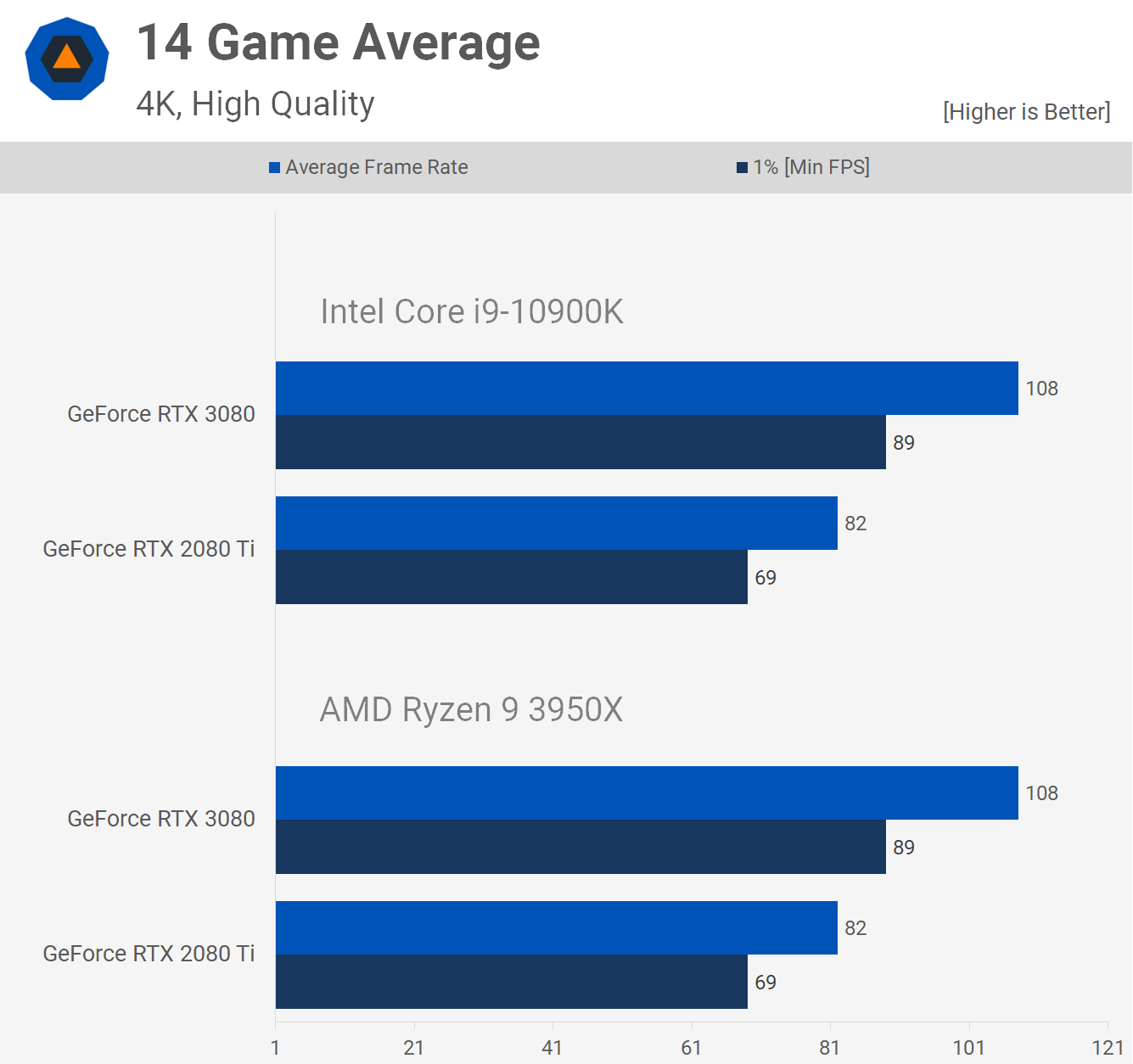I don't understand why this Intel hatred...
Intel is better for gaming, still, even with 5 year old architecture, with pcie 3.0, with whatever disadvantage you want, it is still better.
Then you come and you slap on our face a 750$ processor from AMD that basically 90% of the market won't buy anyway.
Please be reasonable and do the testing with a 3900x then compare with 10700k/10900K and you'll see that your gaming rig should still be Intel based. Period.
You just try to hide the CPU performance delta by testing only 1440p and 4k, when we know that 1080p is the resolution where the actual difference shows up and it is not insignificant like you try to portray it, it is 10-15%.
Why are you insisting with an inferior CPU for gaming tests, when the focus should be to have the best CPU there is, is beyond me...
Guess I'll read reviews from the rest of the websites that still use Intel cpus.
Intel is better for gaming, still, even with 5 year old architecture, with pcie 3.0, with whatever disadvantage you want, it is still better.
Then you come and you slap on our face a 750$ processor from AMD that basically 90% of the market won't buy anyway.
Please be reasonable and do the testing with a 3900x then compare with 10700k/10900K and you'll see that your gaming rig should still be Intel based. Period.
You just try to hide the CPU performance delta by testing only 1440p and 4k, when we know that 1080p is the resolution where the actual difference shows up and it is not insignificant like you try to portray it, it is 10-15%.
Why are you insisting with an inferior CPU for gaming tests, when the focus should be to have the best CPU there is, is beyond me...
Guess I'll read reviews from the rest of the websites that still use Intel cpus.


